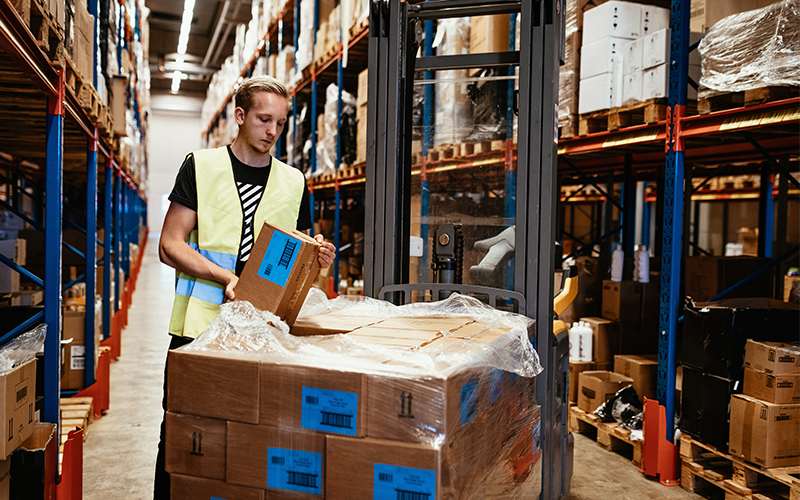The COVID-19 pandemic has caused unprecedented disruptions in almost every sector. It has exposed the lacunae of legacy systems and forced organizations to rethink their strategies. Supply chain management, our topic of focus here, has had its own set of unique challenges in these changing times.
Adapting to the volatile market is the need of the hour for supply chain management professionals.
While supply chains of various organizations across the globe are grappling with situations like the Ukraine war, geopolitical changes, a shift from brick-and-mortar stores to online, and more; it is interesting to see what challenges 2023 will bring!
Supply chain Challenges
- Increasing Freight Prices
- Limited Supply of Raw Materials
- Delays at Ports
- Complexities in Demand Forecasting
- Gaps in Distribution Supply Chains
- Sustainability
The e-commerce industry has experienced unprecedented growth in the pandemic-ridden years. Besides, businesses are no longer restricted to the domestic market but are catering to a global market. As a result, the demand for the shipping of raw materials and finished products has increased, highlighting the importance of effective supply chain strategies. The shortage of free containers coupled with inadequately organised shipping capacities has fueled an increase in freight prices.
The sudden growth of the e-commerce industry has led to a shortage of raw materials for manufacturing organisations across the globe. Events such as the Ukraine war have added to this problem by closing doors to potential sources of raw materials.
The demand for the transportation of goods has increased drastically with the e-commerce boom leading to congestion and delays at ports. Consequently, businesses are suffering huge losses.
The changing dynamics of the marketplace alongside unpredictable consumer behavior have made accurate demand forecasting imperative. The absence of accurate demand forecasting impacts inventory management, logistics, warehousing, and more. Since the variables in demand forecasting are constantly changing and have made demand forecasting more complex.
In today’s customer-centric market, efficient distribution supply chains that ensure timely delivery is not an option but a must! However, rising demand for consumer goods, inefficient shipping, and logistics have posed new problems for distribution channels.
In the wake of climate change, environmental degradation, etc., building sustainable businesses is a MUST. The onus is now on the manufacturing sector to adopt green practices and build sustainable businesses.
Besides these, issues like inflation, lack of cooperation between nations, labour shortages, etc., are the other challenges that supply chains across the globe need to overcome.
How to Overcome Key These Challenges in Supply Chain Management?
There are several areas to focus on to streamline the supply chain management such as:
- Procuring raw materials from multiple sources is a strategically wise decision. It is beneficial to source raw materials from locations that are closer to manufacturing locations, to beat rising freight costs and overcome the shortcomings of transportation delays.
- The activity of maintaining focus on enhancing the efficiency of shipping systems should be of prime importance. Maximizing container usage and tracking shipment will help overcome some typical transportation-related challenges in addition to reducing costs and improving risk management.
- Providing a great customer experience is one of the primary focus areas of a supply chain manufacturing business. Delays in product delivery will negatively impact customer experience. Hence, it would make good business sense to take customers into confidence and keep them informed about delays. This will help build trust and encourage customer loyalty.
The most effective way to address all supply chain management issues is by embracing technology. Supply chains can be optimized through the utilization of various technologies such as the Internet of Things (IoT), Artificial Intelligence (AI) and Machine Learning (ML), Robotic Process Automation (RPA), and other similar tools.
RPA bots enhance the accuracy and speed of several administrative and non-administrative tasks in the supply chain. Automation of processes like procure-to-pay, invoice processing, etc., increases the speed of task completion and reduces the time to market.
AI leverages both structured and unstructured data and analyses it to provide valuable insights that enable making data-based decisions for better outcomes.
ML is a self-learning technology that learns from existing data sets to make forecasts, aiding in risk management for supply chain leaders. These forecasts help in streamlining processes such as inventory management, logistics management, warehousing, etc.
IoT sensors help in tracking the movement of goods in real time through various stages. This data can be leveraged to optimize logistics, transportation, distribution, etc.
Final Takeaway on Key Challenges in Supply Chain Management
Supply chain management has been fraught with several challenges in the past years and businesses are trying to acclimatize to the volatile market. While addressing these hurdles, businesses must also consider that the future is likely to pose new challenges. Adopting innovative technologies like AI, RPA, ML, etc. is the way ahead to make your business agile and resilient to sustain any future disruptions.
For organizations on the digital transformation journey, agility is key in responding to a rapidly changing technology and business landscape. Now more than ever, it is crucial to deliver and exceed on organizational expectations with a robust digital mindset backed by innovation. Enabling businesses to sense, learn, respond, and evolve like a living organism, will be imperative for business excellence going forward. A comprehensive, yet modular suite of services is doing exactly that. Equipping organizations with intuitive decision-making automatically at scale, actionable insights based on real-time solutions, anytime/anywhere experience, and in-depth data visibility across functions leading to hyper-productivity, Live Enterprise is building connected organizations that are innovating collaboratively for the future.








